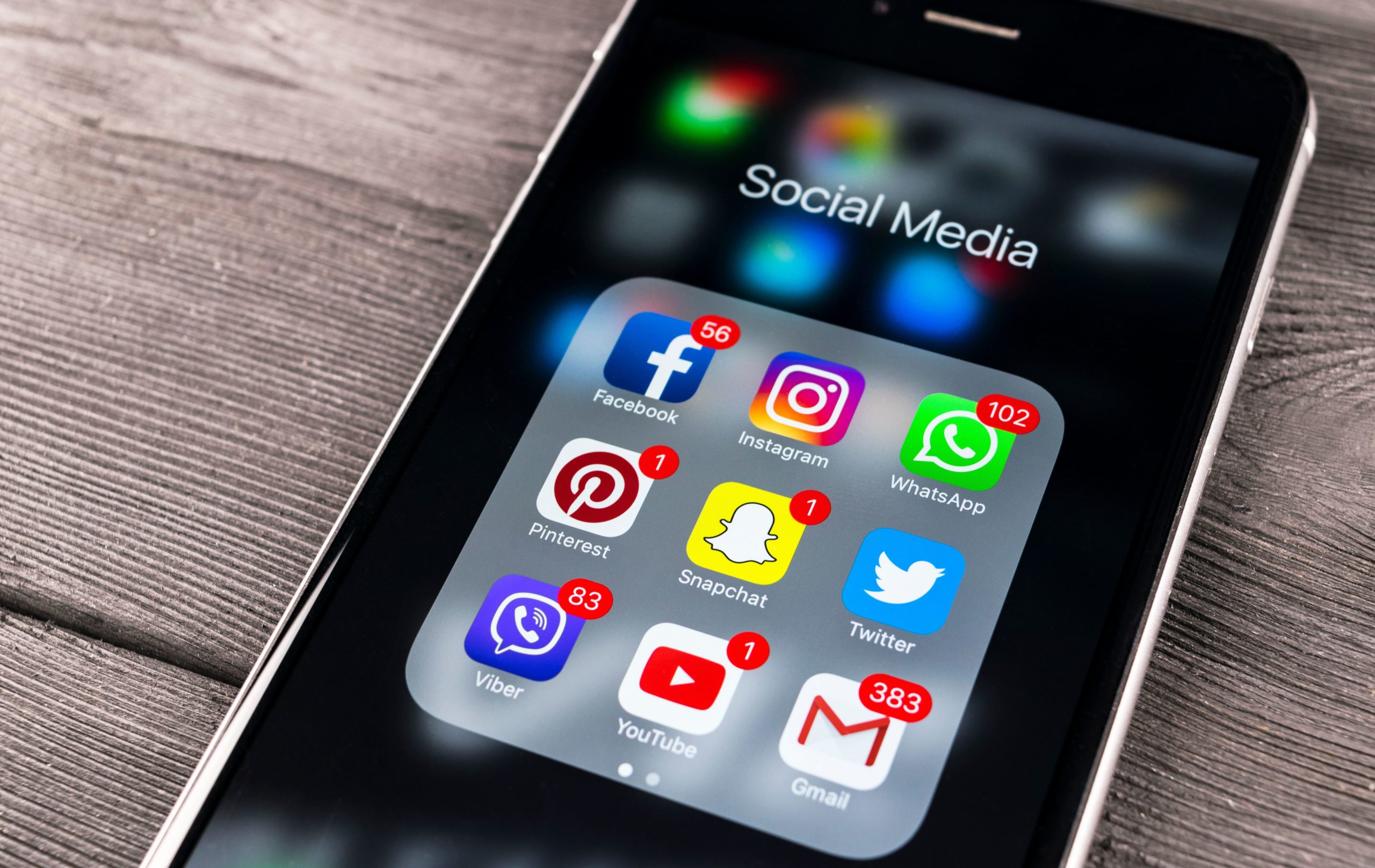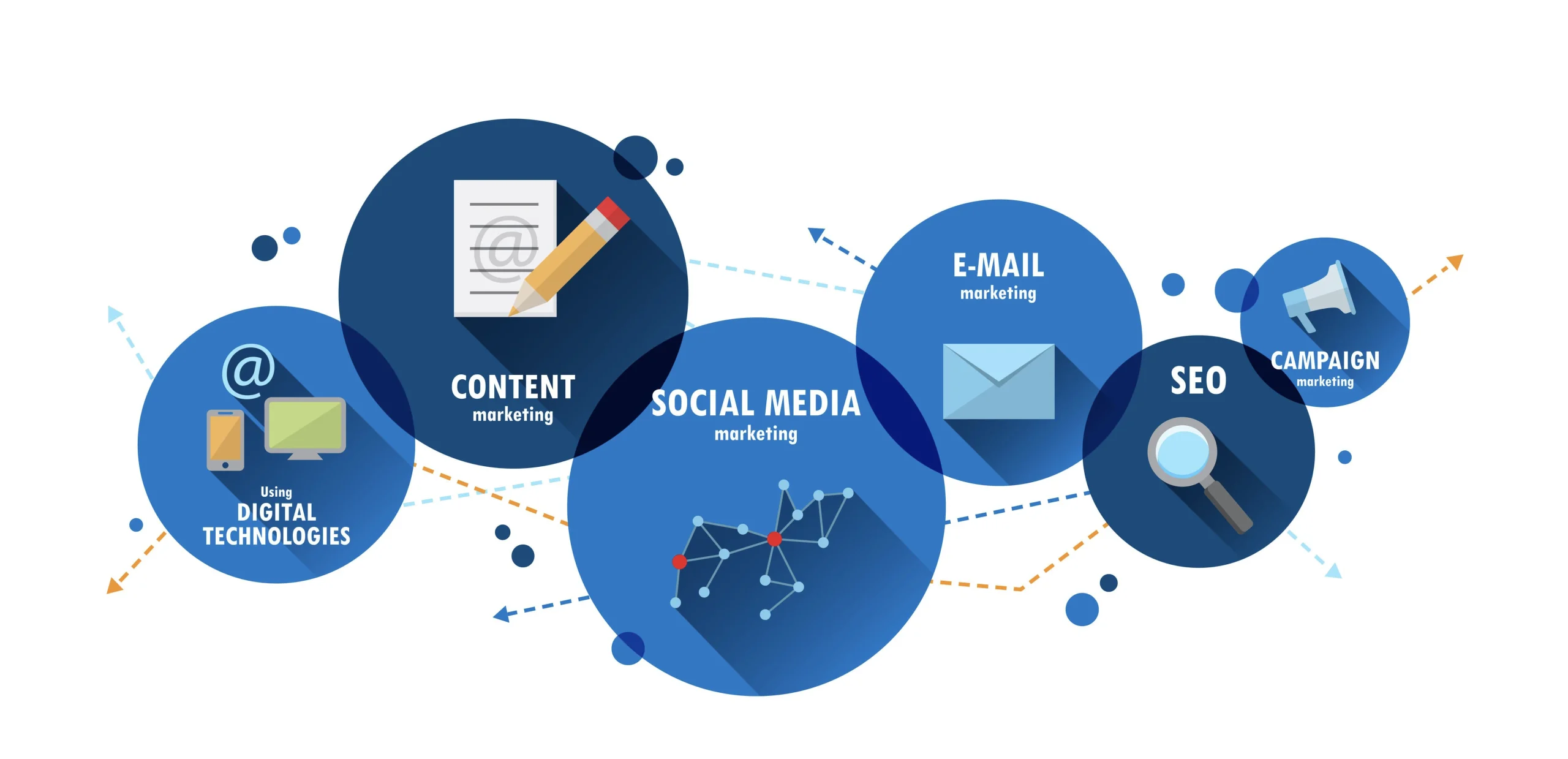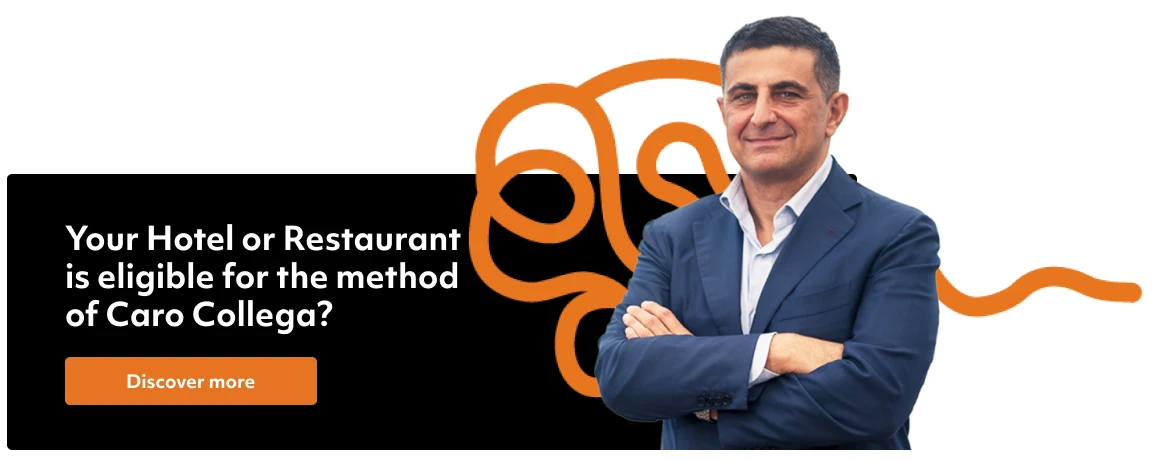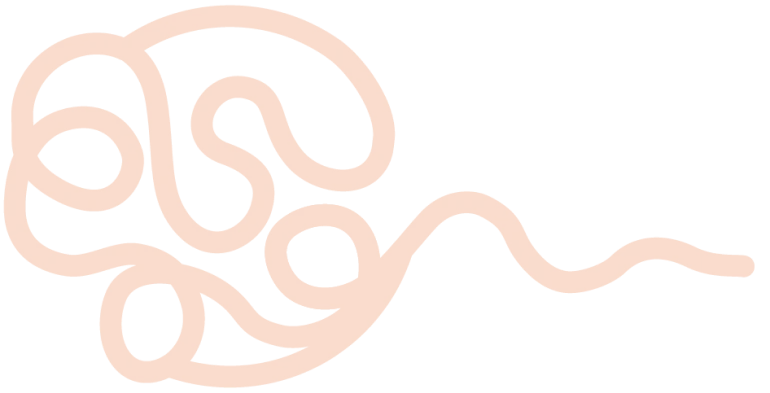For over twenty years I was a hotelier and restaurateur. Both when I was in the restaurant business and when I was the general manager of a beautiful tourist destination in Sardinia named Poltu Quatu, my fixed thought was how to fill the tables or rooms of my business, every day.
I used to complain with my self and with my staff but We always did the same things.
Fortunately, my life has changed and today I am here to share with you my point of view, which is a new starting point. Hotels and Restaurants lose money every day, apparently without anyone caring about this.
In this article
- The myopia of the hotelier or restaurateur
- Social and vanity metrics
- The “perfect balance”
- The Caro Collega method
The myopia of the hotelier or restaurateur
I was a myopic hotelier and restaurateur. During the seasons (2015/2017) when I was in charge of the Grand Hotel Poltu Quatu, revenues were generated in this way:
- 4% from the website
- 53% from OTAs (Booking and Expedia above all)
- 3% from bookings coming from the chain we were affiliated with (Leading Hotels of the world)
- 25% through agreements with tour operators
- 10% from people passing by
- 5% loyal customers
None of the hotel’s revenue was generated by:
- Advertising campaigns on Google (ads)
- Advertising campaigns on Facebook and Instagram (ads)
- SEO (search engine optimization)
- Video, photo and text content created according to the logic of an editorial plan
- Whatsapp, Telegram and Messenger
- Web reputation
- Tripadvisor, Yelp and Fourquare
Basically, I kept complaining that the hotel was operating below its potential, but did nothing to seize the opportunities presented by the digital revolution, i.e. trying to catch the majority of customers who are now online!
Social and vanity metrics
For too long, as a hotelier and restaurateur, I was blinded by vanity metrics. The most common are those related to the number of Instagram or Facebook followers, the likes a post can get or the views of a video. Meaningless data that can be easily distorted using what I called in a previous article the ‘shortcuts to hell’.
One day, as I was pondering why the General Manager of a hotel or restaurant is still attracted to these meaningless numbers, I had an insight that changed the way I look at business. In fact, in my early life as an entrepreneur and hospitality manager, I used to celebrate the moments when I ‘sold out’ of rooms and tables, while blaming my staff for the unsold rooms and tables!
Come to think of it, unsold tables and chairs represent lost money that we will never get back.
Changing my mindset helped me to change my perspective. As a result, over the last few years I have developed the Caro Collega method, which we apply to hotels and restaurants that have realised that digital strategies and tools can increase their turnover in ways that an entrepreneur cannot integrate on his own.
In practice, we add to the traditional sales of hotels and restaurants the sales generated by the implementation of a digital marketing plan. We offer a 100% money back guarantee: if we do not achieve the goals we set together, we will refund your investment.
Imagine having a Digital Dream Team at your service, without having to hire people, and with the guarantee that the entire team will be focused on achieving the goals set, otherwise they will have to pay back the investment!

The “perfect balance”
At this point, many hoteliers and restaurateurs make the same exception: ‘I already have someone in the company who is in charge of marketing’. I too had marketing people when I was GM at Poltu Quatu.
But they were not focused on digital marketing, nor could they carry out all the activities necessary to implement an integrated strategic digital marketing plan, which is what we do when we apply the Caro Collega method.
In fact, we have never thought of replacing people. On the contrary, our Digital Dream Team integrates perfectly with the people in the company. It becomes a source of enrichment for them, stimulating them to think differently and implement new strategies and tools that they would not be able to implement on their own.
It is therefore not a duplication of work, since our first objective is to understand whether a hotel or restaurant is eligible for our course, i.e. to check whether the gap between potential and actual turnover is large.
If so, after signing a contract with a 100% Satisfaction or Refund Guarantee, we will take care of the study and implementation of all those actions that no one else has taken care of!
With the declared aim of intercepting customers targeted with our offer (and not generic) from the Internet and filling unsold rooms and tables.
Digital marketing is therefore a set of activities and strategies aimed at professionally promoting a hotel or restaurant through digital channels such as the web, social media, advertising campaigns on Google and Meta, email marketing and Whatsapp, Messenger, Telegram, etc. Strategies and channels that most hospitality companies see as a cost centre.
Strategies and channels that most hotels and restaurants consider a cost centre and that we at Caro Collega have turned into a profit centre, guaranteeing at least a 300% return on investment.
It is no coincidence that our mission is to fill room after room and chair after chair every day, trying to maximise the revenue achievable. Perfectly aligned with that of every other hotelier and restaurateur.

The Caro Collega method
The Caro Collega method, ideal for a hotelier or restaurateur, is based on a perfect mix: my vertical experience as an entrepreneur and manager of Hotels and Restaurants and that of the Digital Dream Team which is vertical in digital marketing.
I represent the bridge between young people who are 30 years old and who have the digital skills to achieve their goals and the hotelier, restaurateur or manager who are my peers and who would find it difficult to relate to people who are too young.
In detail, the ‘core’ activities that the Digital Dream Team deploys to help Hotels and Restaurants fill unsold rooms and tables are:
- Online presence management: this means that the hotel or restaurant must have a professional presence on various digital platforms such as Google, Google Maps, TripAdvisor, Facebook, Instagram, YouTube, TikTok and other social media. An online presence increases the visibility of your business and makes it easier for customers to find you. In addition, an accurate and up-to-date online presence makes it easier for customers to find the information they need, such as opening hours, services offered, prices and reviews.
- Create digital advertising campaigns (Ads): Instagram, Facebook, Google are companies that want to sell advertising on their platforms. Investing in these channels is essential if you want to promote your business to a mass audience. There are several advertising platforms that can be used, such as Google Ads, Facebook Ads, Instagram Ads, Tripadvisor Ads and others. Ad campaigns can be used to reach a defined audience based on demographic, geographic, behavioural and interest criteria, or to be present in a specific city or price range.
- Use of remarketing: Remarketing is a digital marketing technique that allows personalised ads to be shown to users who have already visited the company’s website. For example, if a user has visited a hotel’s website but has not yet made a booking, remarketing allows you to show specific ads to that user, such as special offers or discounts. This can increase the likelihood that the user will return to the site and complete the booking.
- Manage reviews on TripAdvisor, Google, Yelp, Facebook, etc. Reviews can influence customer choice and business reputation. It is important to respond to reviews, both positive and negative, and use customer feedback to improve services. In addition, actively managing reviews can enhance a company’s reputation and attract new customers.
Before concluding this article, I would like to highlight other advantages of digital marketing.
- Firstly, digital marketing allows you to reach a very wide audience. Thanks to digital channels, a business can potentially reach millions of people around the world. This means that even a small hotel or restaurant can compete with much larger and more established businesses.
- Secondly, digital marketing makes it possible to reach specific audiences. Advertising platforms and targeting techniques allow a business to reach exactly the audience it wants, based on demographic, geographic, behavioural and interest criteria. This means that the company is talking to the right customers, those who are most interested in its products or services.
- Thirdly, digital marketing enables more effective customer interaction. Thanks to social media and review platforms, a company can communicate directly with its customers, answer their questions, listen to their feedback and improve its services. This can increase customer loyalty and the company’s reputation.
- Fourthly, digital marketing allows results to be measured accurately. Analysis tools allow a company to know exactly how many people have seen its ads, how many have clicked on its links, how many have completed a booking and so on. This allows them to assess the effectiveness of their marketing strategies and make adjustments if necessary.
Finally, I would like to say that I have tried to explain in simple words (i.e. as a joke I have called it “Ospitalese”, the language that all hoteliers and restaurateurs can understand) why you should integrate a Digital Dream Team in your company, but if you still have any doubts, do not hesitate to write to me.
Article written by Giancarlo De Leonardo, former restaurateur and hotelier and founder of CaroColleaga.com

